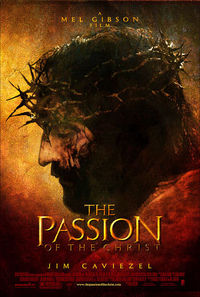Word Recovery Project: Passion


I find it interesting that the word passion has taken on a meaning that has to do with that sense of deep joy and rootedness that comes when we're doing the things we're made to do. For example, you've no doubt heard people say... "I'm passionate about...(opera, climbing, social justice, missions, cooking, travel, etc.). What we mean when we say things like this is that this thing (say cooking) is an endeavor from which we derive great joy, so we invest time in it because it's energizing, and refreshing, and we feel deeply alive when we're doing it, like we're doing what we were created to do.
What I find interesting is how 'opposite' this is of the real meaning of passion. The original meaning is derived from French, and earlier from Latin passio, suffering, noun of action from perfect passive participle passus, suffered. The word, in other words, isn't about finding great joy, but about entering into great suffering. Of course, we use the word this way too when we speak of the 'passion of Christ'. But I promise you Jesus didn't embrace the cross the same way a chef embraces cooking.
I suppose a reason the word is used both ways is because both meanings are, at the core, related. Do you want to be a great chef? You'll suffer along the way. Do you want to climb a mountain. I promise you that you'll suffer physical, both in preparation, and in fulfillment of the vision. The same can be said for virtually any endeavor you love, from tennis to teaching the Bible. So passion has an element of suffering in it that we deny at our peril. And it's the loss of this aspect that is often behind the loss of continuity in marriages, employment, and so many other endeavors. When it gets hard, it's tempting to say, "I've lost the passion" and walk. The reality is that you might well be on the cusp of the deeper joy that only comes with endurance and the suffering endurance reuires.
On the other hand, Jesus' passion wasn't all about suffering. In Hebrews we learn that he 'endured the cross' for the joy set before him. His willingness to suffer was driven not by raw, dogged obedience, but by the hope of great joy that would come from the power of the cross and resurrection.
So I suppose the word passion needs both elements doesn't it - joy and suffering. This makes sense, because the deepest joys will always have a price attached to them: humility, brokenness, endurance, self-denial - all those nasty little elements that make life hard. Don't shrink back from them please... they're part of your passion.


0 Comments:
Post a Comment
<< Home